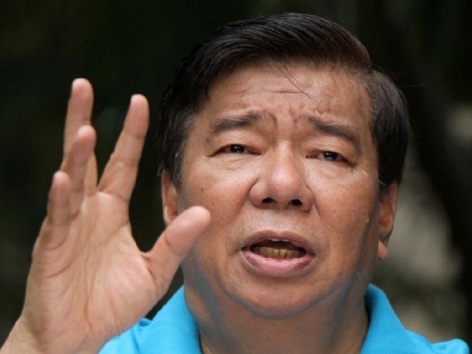The youth is all about the future. This is why the ‘Never
Aqain’ rhetoric of the anti-Marcos camp all but fails to resonate
amongst the Philippines’ youth. That’s unfortunate for candidates and
parties that have their so-called platforms firmly-rooted in the past.
Young Filipinos, quite simply, do not care about the past, perhaps,
rightly so, because there is not much about the past that is under their
control.
Indeed, many of those who throw hissy tantrums about the
‘victimisation’ of Filipinos by the regime of former President Ferdinand
Marcos (FM) are, themselves, part of the very generation that ran the
Philippines to the ground. They are the very Filipinos who foolishly
held on to long-discredited notions, like (1) the idea that a ‘lack of
freedom’ is behind the Philippines’ chronic backwardness, (2) that the
Philippines can easily descend into ‘another dictatorship’ if people are
not ‘vigilant’, and (3) that the Philippines can only move forward if
‘long-overdue justice’ is served.
It is important to note, however, that whatever “sins” the Marcos
family is supposedly guilty of is no different from the sins of the
oligarchy that remains firmly entrenched in Filipinos’ social, economic,
and political life. Perhaps there is much about what the government of
FM allegedly perpetrated while holding the country in the grip of
Martial Law to account for. But how is this different from the same
thievery and injustice perpetrated by post-1986 governments and
oligarchs?
It is thanks to this very important aspect of how the Philippines failed to change
under the watch of the old Yellow Guard that the Philippines’ youth are
now standing immune to the poisonous propaganda that persuades us to
think that Martial Law remains the singular cause of all the
Philippines’ troubles. Indeed, much of the poison of the Yellow rhetoric
has long since expired. And those who take up the new “cause” to
“educate” Filipinos about Martial Law are simply an unappealing lot in
an age of social media-savvy and telegenic influencers.
Heads full of graying hair make up the throng of anti-Marcos activists in this rally.
(Source: BlogWatch.tv)
(Source: BlogWatch.tv)
The
sight of a throng of old farts forming the majority membership of
groups like the Campaign Against the Return of the Marcoses to
Malacanang (CARMMA) is, by itself, a public relations fail. Such
movements simply cannot compete for young eyeballs who are drawn to fresher ideas and fresher faces. Indeed, even whilst the first campaign video of Liberal Party candidates Mar Roxas and Leni Robredo crashed and burned,
they had the right idea nonetheless — that the way into the hearts of
the Philippines’ youth-dominated base of voters is through a forward-looking message.
It is now evident that the Philippines’ young voters cannot be underestimated. They are no longer beholden to the emo rhetoric of 1970s- and 1980s-vintage political chatter and are open to new ideas and new approaches. The first real presidential debate
in a long time organised by the Commission on Elections (COMELEC) and
sponsored by TV network GMA-7, for example, was one of those exercises
that attracted strong viewership and sparked valuable social media
engagement amongst young Filipinos. As a result of the event, young
Filipinos were able to associate ideas to faces. It whetted the appetite of the electorate for more intellectually-stimulating exercises and less of the brain-dead sloganeering and placard-waving style of ‘activism’ of bygone decades.
The old cadre of anti-Marcos ‘activists’ may need to be replaced by more telegenic personalities to be more effective.
In short, it’s time Filipino politicians and ‘thought leaders’ stop
insulting the intelligence of the Philippines’ young voters and start
making more modern sales pitches that appeal to young
sensibilities. Old fossils whining about old uncollected debts make good
curious sideshows but aren’t exactly easy on the eyes and ears and,
certainly, not the sorts of subject matter that rake in television
ratings and social media “likes” and “retweets”. Images of gray-haired
folks shuffling around in 1970s-era outfits waving placards with
messages rendered in that cliché style of lettering made to look like they were written with a blood-stained brush no longer fly.
It’s time for real change — not just in thought but in messaging style.











